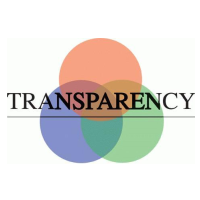Judges Rule Government Workers Can Use Private Devices to Hide Their Communications

What’s a good government scandal without all those pithy email communications between conspirators that they thought were private but eventually fill news accounts with juicy details of despicable behavior?
Californians might find out if a decision last week by the state Court of Appeal for the Sixth District stands. The three-judge panel ruled that government workers can keep their communications private, even if they were about government business, as long as they use private devices and accounts.
Members of the media and others argued that public employees conducting business using private email accounts and communication devices outside the reach of journalists violates the spirit of the 1968 California Public Records Act, which was written long before cellphones, texting and even emails were around.
“They can essentially conduct full meetings in full view of the public. They can sit up there and form collective concurrences and violate not only the Public Records Act, but the Brown Act,” former San Diego Councilwoman and president of the nonprofit California Aware Donna Frye told U-T San Diego. “Just because technology allows people to communicate in different ways, it doesn’t mean the intention about what is a public record has changed.”
The Act defines public records to include any writing related to public business that is “prepared, owned, used, or retained by any state or local agency.”
The judges said it wasn’t their place to open up that can of worms. They acknowledged that government officials concealing “their communications on public issues by sending and receiving them on their private devices from private accounts is a serious concern; but such conduct is for our lawmakers to deter with appropriate legislation.”
The decision reversed a March 2013 ruling by Santa Clara County Superior Court Judge James P. Kleinberg, who said it was appropriate for the courts to act and cited the California Supreme Court: “[It is] unlikely the Legislature intended to render documents confidential based on their location, rather than their content.”
San Jose activist Ted Smith sued the city in August 2009 after it refused to disclose texts, emails and other messages about city business—sent on personal devices—between the mayor, city council members and redevelopment officials. Smith was particularly interested in a subsidized development on property owned by former Mayor Tom McEnery and his family.
But city officials, joined by the California League of Cities, raised issues of privacy and argued it was impractical to try to police the communications of employees. The city said it was willing to give Smith material from public work accounts even if the material was conveyed using private devices. But they wouldn’t go after the private accounts.
Justices Franklin Elia, Conrad Rushing and Eugene Premo agreed. “The obstacles noted by petitioners and the League—the legal and practical impediments attendant to the extra task of policing private devices and accounts—would also be addressed more appropriately by the Legislature or the agency, not the courts.”
However, one more judicial body still might have a crack at this issue. James McManis, attorney for the plaintiff, said he will appeal the ruling to the Supreme Court.
–Ken Broder
To Learn More:
San Jose Court: Government Workers Can Keep Messages from Personal Devices Private (by Mike Rosenberg, San Jose Mercury News)
Ruling Favors Secret Gmail for Officials (by Ashly McGone, U-T San Diego)
Judge Orders San Jose to Disclose Officials' Messages on Private Devices (by John Woolfolk, San Jose Mercury News)
City of San Jose et al v. Ted Smith (Santa Clara County Superior Court) (pdf)
City of San Jose et al v. Ted Smith (California Court of Appeal for the Sixth District) (pdf)
- Top Stories
- Controversies
- Where is the Money Going?
- California and the Nation
- Appointments and Resignations
- Unusual News
- Latest News
- California Forbids U.S. Immigration Agents from Pretending to be Police
- California Lawmakers Urged to Strip “Self-Dealing” Tax Board of Its Duties
- Big Oil’s Grip on California
- Santa Cruz Police See Homeland Security Betrayal in Use of Gang Roundup as Cover for Immigration Raid
- Oil Companies Face Deadline to Stop Polluting California Groundwater





